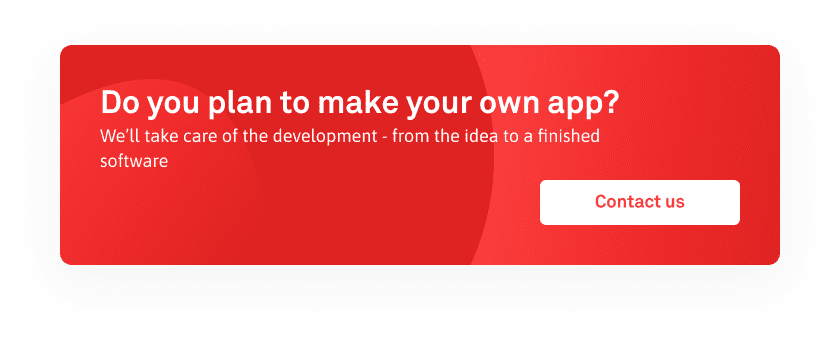When the average person has a new software idea, there’s an extremely high chance that a person has no idea how to build that software. In order to bring their idea to life, a software developer — or team of software developers — will be needed.
As we move further into a digital world, software developers and engineers are becoming more common all over the world. With more developers to choose from, many people will struggle to find the right one for their project and this will often be the reason certain ideas never make it to fruition.
If this sounds like you, you’re not alone. It seems like developers come with various skill sets and backgrounds, and they do! For the most part, however, they can be broken down into two major categories: a full-stack developer or a specialized developer.
To help you find the right software developer for your project, we’ll detail the differences between the two. We’ll also list the various pros and cons involved with each type of developer, so let’s get started!
What Is a Specialized Developer?
When you see the term ‘specialized developer,’ you can expect the developer to have an extreme amount of knowledge in one area of software development. This generally means they are well-versed in either front-end development (client-side) or back-end development (server-side), but not both.
In fact, you can truly find specialized developers for anything related to the development process. Developers might specialize in UI/UX design, domain modeling, building frameworks or a minimum viable product, software testing, and much more.
Unfortunately, specialized developers have started to become a less-popular option among businesses and idea originators today. In this digital age, most people want their developer to have a better overall understanding of the development process.
Specialized developers come in handy when…
Despite specialized developers getting overlooked in most cases, they can provide a large amount of value to the right person. Let’s take a look at some of the major benefits with specialized developers and when you’ll want to consider hiring one.
- Specialized developers have much more knowledge in their particular field than most developers, leading to a higher-quality product
- Specialized developers have an easier time keeping up with new trends and technologies related to their field
- Hiring a team of specialized developers will give you confidence knowing your project is being built carefully and strategically
Specialized developers are going to come in handy when building a team of developers, making it easy to designate responsibility and allocate tasks throughout the development process.
They also come in handy when you need specific tasks done to a project — maybe a task your full-stack developer can’t complete — or need to make certain updates to existing software.
Some pitfalls to hiring a specialized developer are…
While specialized developers come in handy during certain situations, they could also be the reason your software fails or sees disruptions in the process. Either way, they can lead to a wide range of frustration if not matched with the right project.
- Specialized developers generally cost more than a full-stack developer
- You’ll likely need to hire several specialized developers before completing the project, which takes up more of your time (recruiting, interview, on-boarding)
- The more developers you have, the more difficult communication gets
- Specialized developers don’t come with much versatility
You have to keep in mind that most specialized developers will be struggling to find work. Due to this, they’ll accept any job thrown their way — whether they’re the right developer for the project or not.
Don’t be surprised to see your specialized developer stretch their capabilities during the interview process to make them sound more well-rounded.
What Is a Full-Stack Developer?
On the other hand, a full-stack developer won’t have to make themselves sound more well-rounded. That’s because they are well-rounded!
Full-stack developers have become extremely popular in today’s development community. In fact, these developers will often land a role as a CTO (Chief Technology Officer) of large companies due to their widened area of expertise.
You can expect a full-stack developer to have experience in front-end development, back-end development, UI/UX design, testing, maintenance, and much more. Like a specialized developer, there will be pros and cons to selecting a full-stack developer.
Full-stack developers come in handy when…
Full-stack developers come with a wide range of knowledge. While they won’t be as well-versed as their counterparts in specific areas of software development, they’ll have a much more broad understanding of the tasks involved.
Here’s a look at some of the benefits you receive with a full-stack developer:
- Full-stack developers hold the ability to perform a wide variety of tasks and can often complete the entire project themselves
- They generally work quicker than their counterparts, leading to faster time-to-market
- You can save a lot of money with a full-stack developer, often replacing two or three specialized developers
- Flexibility and versatility are extremely valuable traits in full-stack developers
As you can see, full-stack developers are an extremely popular choice among startups, people on a budget, and people looking for software to be built quickly — even if it means sacrificing some of the quality.
Some pitfalls when hiring a full-stack developer are…
Full-stack developers aren’t always going to be the best choice and they can often hurt your chances of finding success with your project. Let’s take a look at some of the pitfalls that come with hiring a full-stack developer.
- While they’re extremely common today, it could make the recruiting process difficult
- Don’t have enough time to keep up with the latest technologies and trends, so some of their methods might be outdated
- Loss of quality due to less knowledge on individual aspects of the development process
- Lack of focus on your project if they’re working on other projects, making errors more common
Since most large companies and software ideas with heavy funding behind it are looking for the best-quality possible, full-stack developers generally won’t be the best choice. They also won’t make good team members because they’re used to working on every task — not splitting tasks with others. This is why they generally make good project managers and CTOs, rather than individual team members.
If you’re ready to start your project and need a developer to bring it to life, contact us today. We help a variety of clients find success with their software development and can’t wait to do the same for you!
—
Photo by G-Stock Studio on Shutterstock



